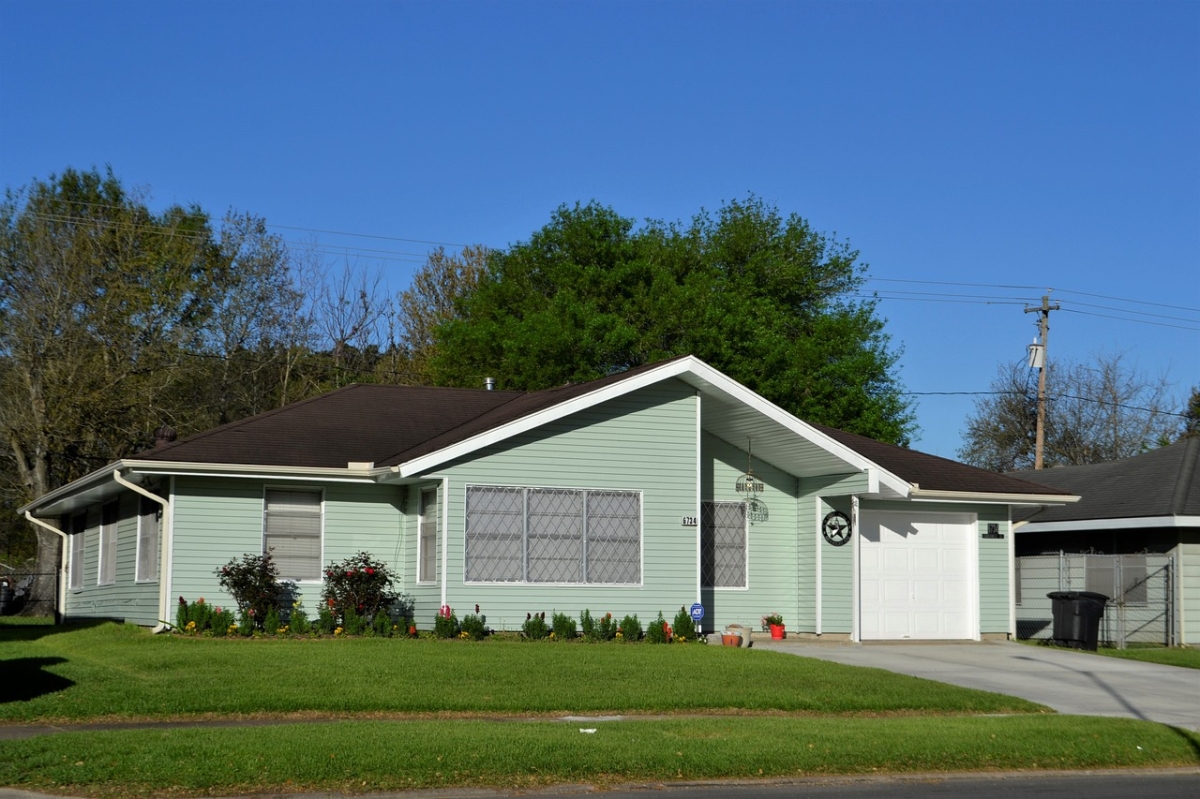Are you planning to sell your property in the Philippines? Avoid costly mistakes and maximize your profits with our expert guide on negotiating the best selling price.
Discover effective strategies, market insights, and essential tips to attract buyers, close deals, home selling mistakes, and achieve success in the Philippine real estate market. Don’t miss out on this opportunity to make the most out of your property sale.
Let’s dive in!
Understanding the Market
To negotiate the best selling price for your property in the Philippines, it’s crucial to have a solid understanding of the market dynamics. By gaining insights into current trends and assessing the fair market value, you can position yourself for a successful negotiation.
Here’s how to navigate the market effectively:

Researching and Analyzing Current Market Trends
Stay updated on the latest real estate trends in the Philippines. Monitor factors such as property demand, supply levels, and price fluctuations.
Pay attention to regional variations and specific factors that affect your local market.
Determining the Fair Market Value of Your Property
Accurately determining the fair market value of your property is essential. Consider factors like location, size, condition, amenities, and recent sales of similar properties in your area.
Consulting with real estate professionals or using online valuation tools can help you get an estimate.
By having a comprehensive understanding of the market, you can set a realistic asking price and approach negotiations confidently. Keep in mind the specific nuances of the Philippine real estate market to make informed decisions and maximize your selling potential.
Preparing Your Property for Sale

Before negotiating the best selling price for your property in the Philippines, it’s crucial to ensure that it leaves a lasting impression on potential buyers. Just like a well-tailored suit or a meticulously crafted work of art, your property needs to showcase its best features.
Here’s how to prepare your property for a successful sale:
1. Enhancing the Curb Appeal and Overall Presentation
First impressions matter, and the exterior of your property sets the tone. Spruce up your curb appeal by manicuring the lawn, trimming hedges, and adding colorful plants.
Consider a fresh coat of paint and make necessary repairs to create an inviting facade.
2. Conducting Necessary Repairs and Maintenance
A property in top-notch condition is more likely to attract buyers and command a higher selling price. Fix any leaky faucets, faulty electrical outlets, or damaged flooring.
Ensure that all systems, such as plumbing and HVAC, are in proper working order.
3. Depersonalizing and Decluttering
Create a neutral canvas for potential buyers to envision themselves in the space. Remove personal items, family photographs, and excessive clutter.
Opt for a clean and minimalist aesthetic that highlights the property’s features and allows buyers to visualize their own style.
4. Staging the Interior
Consider staging your property to showcase its potential. Strategically arrange furniture and décor to create a warm and welcoming atmosphere.
Use neutral colors and tasteful accents to appeal to a wide range of buyers.
By investing time and effort into preparing your property, you create an irresistible package that captivates buyers. Remember, a well-prepared property not only increases its desirability but also strengthens your position during negotiations.
Setting the Initial Asking Price
When it comes to negotiating the best selling price for your property in the Philippines, setting the initial asking price is a critical decision. It serves as the starting point for potential buyers and can greatly impact the negotiation process.
To position yourself for success, follow these key considerations:
1. Factors to Consider When Determining the Asking Price
Take into account various factors that influence the value of your property. Consider the location, size, condition, amenities, and unique features it offers.
Additionally, factor in current market conditions, demand, and competition in your area.
2. Pricing Strategies to Attract Potential Buyers
Decide on a pricing strategy that aligns with your goals. A competitive pricing approach, slightly below the market average, may attract more buyers and create a sense of urgency.
Alternatively, setting a higher price and allowing room for negotiation can give you some flexibility during the process.
3. Utilizing Comparative Market Analysis (CMA)
Perform a Comparative Market Analysis to assess recent sales prices of similar properties in your area. This analysis provides valuable insights into the local market and helps you determine a fair and competitive asking price.
4. Seeking Professional Guidance
Consider consulting with a real estate agent or appraiser who has expertise in the Philippine market. Their knowledge and experience can provide valuable guidance in setting the right asking price based on market trends and buyer expectations.
Remember, setting an appropriate initial asking price is crucial to attract potential buyers and initiate negotiations on the right foot. It’s essential to strike a balance that reflects the value of your property while considering market dynamics and buyer perceptions.
Gathering Relevant Information

To negotiate the best selling price for your property in the Philippines, it’s crucial to arm yourself with relevant information. Just as a skilled detective gathers clues to solve a case, you need to collect valuable data and insights.
Here’s how to gather the right information for a successful negotiation:
1. Collecting Data on Recent Comparable Property Sales
Investigate recent sales of properties similar to yours in your local area. This data serves as a benchmark for determining a realistic selling price.
It’s like uncovering hidden treasures that provide insights into market trends and buyer preferences.
2. Utilizing Online Real Estate Platforms and Resources
Tap into the power of technology by utilizing online real estate platforms and resources. Websites like Lamudi, Property24, or real estate apps offer comprehensive listings, market reports, and property valuations.
These platforms act as your trusty compass, guiding you through the vast real estate landscape.
3. Analyzing Market Trends and Economic Indicators
Keep a close eye on market trends and economic indicators that influence the real estate market in the Philippines. Monitor interest rates, government policies, and local developments.
This information acts as a crystal ball, allowing you to anticipate shifts in the market and make informed decisions.
4. Consulting Local Real Estate Professionals
Engage in conversations with local real estate professionals such as agents, brokers, and property managers. Their wealth of knowledge and experience can provide invaluable insights into the current market conditions, buyer preferences, and negotiation strategies.
They are like wise mentors, guiding you towards successful negotiations.
By gathering and analyzing relevant information, you equip yourself with a powerful arsenal to negotiate confidently. Remember, information is the key that unlocks opportunities and empowers you to make informed decisions throughout the negotiation process.
Negotiation Techniques
When it comes to negotiating the best selling price for your property in the Philippines, employing effective techniques is essential. Think of negotiation as a delicate dance, where both parties aim to find a harmonious rhythm.
Here are key techniques to help you sway the negotiation in your favor:
Developing Effective Negotiation Skills
Sharpen your negotiation skills to become a masterful negotiator. Just like a skilled artist wields their brush, practice the art of persuasion, active listening, and problem-solving.
These skills are the paintbrushes that allow you to create a masterpiece negotiation.
Strategies for Handling Buyer Objections and Offers
Prepare yourself to encounter buyer objections and offers during the negotiation process. Address objections with confidence, providing compelling counterpoints to alleviate concerns.
Craft offers that are strategic and well-reasoned, striking a balance between your desired selling price and buyer’s expectations.
Finding Win-Win Solutions
Seek win-win solutions where both parties feel satisfied with the outcome. Like a delicate balancing act, identify common interests and explore creative alternatives that benefit both you and the buyer.
Remember, negotiation is not a zero-sum game but an opportunity for mutual gain.
Maintaining a Professional and Respectful Attitude
Maintain a professional and respectful attitude throughout the negotiation process. Treat each interaction as a chance to build rapport and trust.
Like a graceful conductor leading an orchestra, guide the negotiation with grace and diplomacy.
By employing effective negotiation techniques, you can navigate the intricate dance of negotiation, ensuring a favorable outcome for both parties involved. Remember, negotiation is not a battle, but a collaborative effort to find common ground and achieve a mutually beneficial agreement.
Counteroffers and Tactics
In the realm of negotiating the best selling price for your property in the Philippines, the skillful use of counteroffers and tactics can significantly impact the outcome. Think of counteroffers as strategic maneuvers, like chess moves, that position you for a favorable outcome.
Here’s how to employ effective counteroffers and tactics during negotiations:
1. Responding to Buyer Offers with Counteroffers
When faced with a buyer’s offer, carefully assess its terms and consider crafting a counteroffer. This counteroffer serves as a strategic response, like a well-executed chess move, to shape the negotiation in your favor.
Adjust the price, terms, or conditions to reflect your desired outcome while remaining open to compromise.
2. Applying Negotiation Tactics to Secure a Higher Selling Price
Utilize negotiation tactics to influence the negotiation process and secure a higher selling price. Employ tactics such as anchoring (setting a high initial offer), offering incentives (e.g., including certain furnishings), or emphasizing the unique value your property offers.
These tactics act as subtle nudges, guiding the negotiation towards your desired outcome.
3. Understanding Buyer Psychology and Motivations
Delve into the psyche of potential buyers and uncover their motivations. Just as an empathetic detective uncovers the hidden desires and needs of their suspects, understanding buyer psychology allows you to tailor your counteroffers and negotiation strategies.
Adapt your approach based on their preferences, priorities, and emotional triggers.
4. Recognizing When to Hold Firm and When to Compromise
Effective negotiation involves knowing when to hold firm on your desired selling price and when to consider compromise. Like a skilled tightrope walker, balance your firmness with flexibility, taking into account the dynamics of the negotiation and the value you place on the outcome.
Be strategic in your decision-making to achieve the best possible result.
By employing well-crafted counteroffers and employing effective negotiation tactics, you can navigate the negotiation process with finesse and increase the likelihood of achieving your desired selling price. Remember, negotiation is a delicate dance of give and take, and by mastering these techniques, you can tilt the balance in your favor.
Assessing Buyer Motivation and Flexibility

To negotiate the best selling price for your property in the Philippines, it’s crucial to understand the motivations and flexibility of potential buyers. Think of it as unraveling the intricate layers of a mystery, where each clue brings you closer to unlocking their true intentions.
Here’s how to assess buyer motivation and flexibility for a successful negotiation:
1. Understanding Buyer Needs and Motivations
Like a detective examining evidence, delve into the motivations driving potential buyers. Are they looking for a family home, an investment property, or a retirement retreat?
By understanding their needs, desires, and aspirations, you can tailor your negotiation approach to align with their motivations.
2. Exploring Options for Flexible Negotiation Terms
Consider the flexibility of potential buyers regarding negotiation terms. Just as a skilled negotiator adapts their strategy to fit the circumstances, explore various options for flexibility.
This could involve adjusting the timeline for closing the sale, considering seller financing options, or accommodating specific buyer requests.
3. Analyzing Market Trends and Buyer Behavior
Analyze market trends and buyer behavior to gain insights into their willingness to negotiate. Like a seasoned observer, pay attention to indicators such as average days on market, buyer demand, and buyer-seller negotiation ratios.
This information provides valuable clues about the prevailing market conditions and buyer attitudes towards negotiations.
4. Leveraging Information for Strategic Negotiation
Utilize the gathered information strategically during negotiations. Like a skilled strategist mapping out their next move, leverage your understanding of buyer motivations and flexibility to craft compelling arguments and counteroffers.
Tailor your negotiation approach to appeal to their needs and present mutually beneficial solutions.
By assessing buyer motivation and flexibility, you gain a deeper understanding of their intentions and can tailor your negotiation strategy accordingly. Remember, negotiation is a delicate dance of understanding, adaptability, and mutual benefit.
Closing the Deal
The moment of closing the deal for your property in the Philippines is both thrilling and pivotal. It’s like reaching the grand finale of a captivating performance, where all the elements align to seal the transaction.
To ensure a smooth and successful closing, consider the following key aspects:
1. Finalizing Negotiations and Reaching an Agreement
As negotiations progress, work towards finalizing the terms and conditions of the sale. Like a skilled conductor bringing together harmonious melodies, seek common ground and ensure all parties are in agreement.
Clarify any outstanding issues, address contingencies, and document the agreed-upon terms.
2. Important Legal Considerations and Documentation
Navigating the legal aspects of a property sale is essential for a secure and legally binding transaction. Just as a meticulous writer crafts a compelling narrative, ensure all necessary legal documentation is in order.
This includes the deed of sale, title transfer, disclosure statements, and any required permits or clearances.
3. Collaborating with Professionals
Engage the expertise of professionals such as real estate agents, lawyers, and notaries to guide you through the closing process. Like a well-coordinated ensemble, collaborate with these professionals to ensure all necessary steps are followed, legal requirements are met, and potential risks are mitigated.
4. Celebrating a Successful Property Sale
Closing the deal is cause for celebration, marking the culmination of your efforts and the beginning of a new chapter. Like a victorious finale, take a moment to acknowledge your achievement and express gratitude to all parties involved.
Share the joy with family, friends, and those who supported you throughout the selling process.
By navigating the closing process with diligence and attention to detail, you can successfully conclude the sale of your property in the Philippines. Remember, closing the deal is not only about finalizing paperwork, but it also signifies the fulfillment of your goals and aspirations.
Embrace this milestone and look forward to new opportunities on the horizon.
Final Thoughts
Negotiating the best selling price for your property in the Philippines requires careful planning, market knowledge, and effective strategies. Throughout the process, you’ve learned valuable insights and techniques to position yourself for success.
Now, it’s time to bring it all together and embark on your journey towards a successful property sale.
By understanding the market dynamics, setting a realistic asking price, preparing your property to showcase its best features, and gathering relevant information, you’ve laid a strong foundation for negotiation. Armed with effective negotiation techniques, counteroffers, and an understanding of buyer motivation and flexibility, you have the tools to navigate the negotiation process with finesse.
Remember, negotiation is a dance of give and take, where finding win-win solutions is key. Assess buyer motivations, leverage market trends, and maintain a professional attitude to achieve your desired selling price while building rapport with potential buyers.
As you approach the closing stage, ensure all legal considerations are addressed, documentation is in order, and professionals are engaged to guide you through the process. Embrace the excitement of closing the deal, celebrating the successful sale of your property and the beginning of a new chapter.
Congratulations on your journey to negotiate the best selling price for your property in the Philippines. By applying the strategies and techniques outlined in this guide, you’ve equipped yourself with the knowledge and skills to maximize your selling potential.






